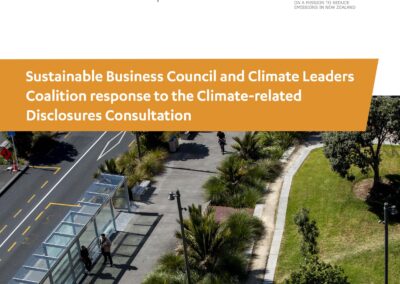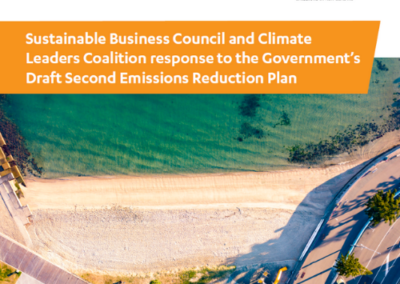Our Advocacy
Since its inception in 2018, the Climate Leaders Coalition has advocated for cross-party support for policies and investments that enable Aotearoa’s transition to a zero carbon and climate resilient economy.
Becoming a Climate Leaders Coalition signatory offers businesses the opportunity to influence key climate-related government decisions, budgets and pieces of legislation, ensuring their voices are heard at the highest level.
Alongside the Sustainable Business Council, we advocate on behalf of our 160+ collective members to government ministries and agencies, providing a clear, consistent and reputable voice for businesses taking climate action.
Through advocacy, our signatories have influenced:
- Bipartisan support for Zero Carbon legislation, introduction of the Climate Change Commission and emissions budgets enshrined in law.
- Bipartisan support for New Zealand’s first emissions budgets.
- The Government’s first Emissions Reduction Plan, with 12 of 14 key signatory priorities included.
The Coalition continues to advocate for an effective and enduring National Adaptation Plan, and to ensure effective, bipartisan climate policies provide the certainty and confidence businesses and communities need to invest and transform regardless of who is in government.
CLC/SBC response to the Government’s Draft Second Emissions Reduction Plan
The Sustainable Business Council (SBC) and Climate Leaders Coalition (CLC) welcome the opportunity to respond to the Government’s Draft Second Emissions Reduction Plan (ERP2).
The companies and organisations represented – over 40% of New Zealand’s current GDP – are committed to working together to play an active role in meeting New Zealand’s emissions budgets and targets, and setting our economy up for a low-emissions, climate resilient future.
This response represents the experience of members in reducing their emissions and draws on previous submissions, reflecting SBC and CLC’s ongoing engagement with climate policy and action.





